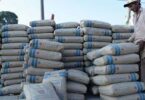F.P. Report
ISLAMABAD: The lawmakers in the National Assembly on Wednesday passed the Finance Bill 2022 with a majority vote, giving legal effect to budgetary proposals for the next fiscal year.
The bill was moved by Minister of State for Finance Aisha Ghaus Pasha.
Having a total outlay of 9502 billion rupees, the budget 2022-23 encompassed measures for sustainable economic growth, industrial and agriculture development and relief for the poor people.
The budget envisaged Federal Public Sector Development Programme (PSDP) of 800 billion rupees for the next fiscal year. It has been centered on improvement in sectors such as water resources, transport and communication, energy, higher education, health, science and technology, and balanced regional development.
As many as 699 billion rupees have been set aside for targeted subsidies to extend benefit to deprived segments of the society.
The budget of Benazir Income Support Program has been increased to 364 billion rupees. In addition, 12 billion rupees have been allocated for the provision of subsidy on essential commodities through Utility Stores Corporation.
The salaries of the government employees have been increased by 15 percent along with a merger of ad hoc allowances.
As regards taxation, the government has levied super tax on affluent class in order to reduce the budget deficit and take the country towards economic sovereignty.
The government presented the budget for the fiscal year 2022-23 on June 10 with a fiscal adjustment of Rs1.25 trillion, but the IMF did not accept it, leaving Pakistan with no other choice but to make further amendments.
Then on June 24, Finance Minister Mifath Ismail announced additional taxes that are expected to generate Rs466 billion, which helped the government reach an understanding with the IMF for the bailout package.
The measures included bringing down the income tax slab for people earning from Rs50,000 to Rs100,000. They will be taxed at 2.5% and the rate moves up for the ones earning higher.
The government also agreed to the Fund’s demand of imposing a 1% poverty tax on companies earning Rs150 million, 2% on those generating an income of Rs200 million, 3% on those earning more than 250 million, and 4% on the ones generating an income of Rs300 million or more than that.
These measures were in addition to the 10% super tax imposed on 13 big industries — cement, steel, banking, airlines, textile, automobile assembling, sugar mills, beverages, oil and gas, fertiliser, cigarettes, chemicals, and LNG terminals.
Petroleum levy
The lower house also approved amending the Petroleum Products (Petroleum Levy) Ordinance, 1961, caving in to the IMF’s demand of imposing a petroleum tax levy of Rs50.
The finance minister, while speaking on the floor of the lower house, said that the petroleum levy was at Rs0 currently. He added that the government will not impose Rs50 in one go, rather it would be gradual.
Other amendments approved were collecting sales tax from traders through electricity bills, 5% sales tax on services of software and IT consultants.
Further, the NA approved an amendment for imposing a super tax between 1-4pc on the income of those earning between Rs150m to Rs300m. It also approved imposing a 10pc “super tax” on large-scale industries.
Under the bill, a levy between Rs100-Rs16,000 was imposed on the import of mobile phones depending on its value. For mobile phones having a cost-and-freight (C&F) up to $30, it will be Rs100. For phones more than $30 and less than $100, it will be Rs200.
In the same way, for phones costing up to $200, it will be Rs600. For phones up to $350, it will be Rs1,800. For phones costing up to $500, the rate of levy will be Rs4,000. Meanwhile, for phones worth up to $700 it will be Rs8,000, while for phones more than $ 701 it will be Rs16,000.






